Features
Executive Profile: Brian Traeger
Traeger and the Live Nation staff, under country music president Brian O’Connell, have a 10-year operations and booking agreement at the city’s
Along with booking the lion’s share of shows at the city’s
“It’s about booking those venues but also overseeing the local business unit and the strategy and the additional duties that go along with overseeing that division,” Traeger said.
Live Nation recently signed a contract with
Traeger is a bit of a journeyman and we began by asking him how he went from Chicago to Nashville via Los Angeles.
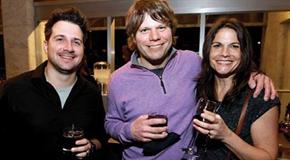
So how did you get involved with all of this music stuff?
When I was in the college at Northwestern University in Chicago. I interned for Mary Clare Bourjaily and Michael Yerke at House of Blues and had a great work experience. That was my junior year in college. In my senior year I did some street team work for them.
How did that come about?
There was a classmate of mine who had done a part-time internship [at HoB] and said he had enjoyed it. He knew I was a big music fan. I was looking at doing what they call a Field Study Program at Northwestern where you do a fulltime internship in lieu of doing a fulltime class load. For four days a week, you work fulltime and one day you go to a 2- to 3-hour class and write weekly papers about your experience.
I interned at Morgan Stanley Dean Witter prior to that and was considering going back but thought it would be good to mix things up and diversify my internships. I wasn’t sure what field I wanted to go into. I applied, talked to Mary Clare, it came down to crunch time and said I’d be interested. “All right,” she said. “You’re going to start on this date.” I did; was their first fulltime intern and loved it. My senior year 9/11 happened and I was still doing street-team work for them, just dropping flyers off at record stores.
On my way home from House of Blues I’d stop at DePaul and Loyola to drop off flyers, and hit the record stores in Evanston and around campus. I’d go down once a month to pick up flyers, sit down and talk with them, catch up and Michael asked me what my plans were post-college.
Because 9/11 was during my senior year I had friends who graduated the year before who were told, “Keep your signing bonus, but you don’t have a job.” I had friends who went to work for consulting companies and finance companies, whether it was Bear Stearns or Accenture and they had a signing bonus of $10,000. But then they’d say, “You know what? Keep that and we’re freezing hiring,” and basically were let go. Some 30 percent of corporate recruiters from the year before ceased coming to campus. Meanwhile, Michael said I had the right temperament and personality for the business and would do well. He helped me get my first two jobs when I was out of college. So I did three internships.
I did Morgan Stanley Dean Witter. I did House of Blues and I worked for a nonprofit, the Mayer & Morris Kaplan Family Foundation. I put my resume in at all the agencies, then a job opened up at Jeff McClusky & Associates which was, at the time, the largest independent record promotion company. So I went to work for Jeff for about a year and a half. After that I took a job working for Kevin Morrow (at House of Blues). I was Kevin’s assistant. It was my first job on the live side, professionally.
Did anything inspire you to move in this direction?
I just always loved music and prided myself on knowing a lot about it. The internship was great and when Michael asked if I thought about going into the industry I said, “Not really. I think the barrier of entry is too difficult.” And he said he’d help me. So I put together a plan with him, said if I can land and do a job within a certain timeframe I’d pursue it. I was getting very passioniate about it and feel I was fortunate to get a job in the way that I did.
So I was on Kevin’s desk for about a year and obviously learned a lot from him. At the time he knew I wanted to be a talent buyer. When he first interviewed me he said, “Look, I’m involved with sponsorship. I’m involved with talent buying. I’m involved in marketing. I’m involved in all the various aspects. You’ll have exposure to all of it and should make a decision on what direction you want to go.”
Through my relationship with Michael and Mary Clare, and having learned from them, I figured that’s where my passion laid. I think Paul McGuigan had come over from the Troubadour within a year of when I got there and Kevin said maybe I should move into the venue and work with Paul, and really learn the nuts and bolts of booking and promoting at the club level. So I was basically the talent assistant and worked with Paul and Anjali Raval and just had a great year with them.
Kevin said, “We were going to ramp up our club and theatre touring division. Why don’t you come back?” Elyse Rogers and Randy Fibiger were the two people who were doing it. So I moved into a hybrid role with them where we were doing sponsorship and one of the deals I got was with Hot Topic. They’d give us X number of dollars a year and we’d go to Tim Borror’s bands and Andrew Ellis’ bands (at the time the heads of Face The Music Touring and Ellis Industries, respectively), which worked in perfectly for their brand. This was the era of $15-$20 tickets in that genre so you’re talking $5,000 to $7,500 guarantees.
We’d say, “All right, in our House of Blues club network we’d like to get 20 shows and we’ll give you a sponsorship deal to secure them.” I did that for less than a year as well. I think it was August 2006 they called everybody in and told us Live Nation acquired House of Blues.
Kevin, Jim Mallonee, Michael Yerke and Sonny Schneidau, who were more or less the principals of the core senior staff on the talent side, got on call to figure out where to put me because they didn’t know if it was going to happen. Michael said, “Hey, I think we have room in Chicago and I think we have some changes coming.” So I basically went back to the Chicago House of Blues to work under Michael, Mary Clare and John Reens.
I officially moved in October and then, in December, the deal officially closed and Mark Campana called me and said, “We don’t know each other but I’ve heard good things about you and you’re going to be the first House of Blues employee to move into a Live Nation field office.”
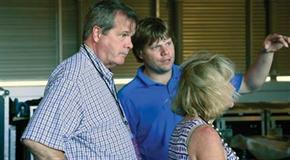
OK, so then what?
Our House of Blues offices in Chicago were all the way in the basement and everyone was on top of each other, so I packed up all my stuff and went right around the corner, basically, and started working with Jason Wright, Mark, Michael and Tommy Ginoza. I started doing buy-sells for 1,800 and under in Minneapolis and Michael said that whatever shows I could put into the House of Blues, great.
I began working with him on larger theatre shows and started working with Jason Wright, learning the amphitheatre and arena side. I did that for two years. Then they started to ramp up the L.A. touring office when it was Bruce Kapp, Brad Wavra, Ryan McElrath, Faisal Durrani, Rinat Radvinsky, Taki Pappas, and John Riccardi and they felt they needed more people there.
They offered me that job and I moved back and worked under Ryan McElrath. Then I had the fortunate opportunity of randomly walking by Ryan’s office – he wasn’t in there – and whose assistant had stepped away, and I picked up the phone and it was (promoter / boxing impresario) Al Haymon. Al needed something, I don’t remember what it was, but I said, “I don’t know where Ryan is but what do you need?” and I said I could do it, no problem. Al took a liking to me and I started to help Ryan more on the Al Haymon business.
The LA touring office was not fully staffed at that point so everyone was kind of spread very thin. I started to take all the Al Haymon work off of Ryan’s plate. He still oversaw it, from the executive level, but I started working with Al on all of his stuff – Chris Brown, Beyoncé, Lil Wayne, Drake, and many of the handful of heritage R&B acts. For more or less 2-and-a-half years I talked to Al four to 10 times a day and learned a ton from him.
When Jason exited the company and Mark and Bob Roux came into their roles (presidents of North America Concerts), they started to focus on the regional offices. Having grown up in Lancaster, Pa., and having worked with Geoff Gordon for 2-and-a-half years from the touring side, he said “I need a strong No. 2 here. Would you like to move to Philadelphia?” I talked to everybody and they said it’s probably a good move for you so I moved to Philadelphia and worked with Geoff for four years.
Then, the opportunity came up in Nashville and Mark and Bob asked me my thoughts on it. At the time my parents were living in Clarksville, Tenn. I said the amphitheater project is pretty special and I’d love to be involved in it and they said, “All right. We want you to do it.” We probably worked on the RFQ (Request for Quotation) for a year prior to me moving then we were rewarded the contract and I moved to Nashville; it will be two years in November.
That’s a lot of stuff. Can it all be lumped under the term “talent buyer”? Can you say that what you do now can be put under that term?
There’s “talent buyer” and there’s “promoter,” and there are times when you’re designated the term “talent buyer.” I’ve been very lucky to work with the best promoters, and learn from them, who also learned from the best promoters in the history of the business. I feel extraordinarily lucky to have worked under all the people that I have and learned from them a tremendous amount.
There are not a lot of people who can say they’ve worked for Bob Roux, Mark Campana, Al Haymon, Jason Wright, Geoff Gordon, Michael Yerke, and Ryan McElrath. I feel extremely lucky and hope that people who want to do what I do, moving forward, have the opportunity to work with all these people.
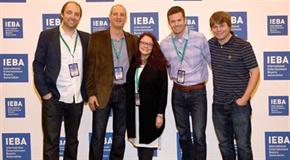
So you arrive in Tennessee. What were the first goals?
Trying to figure out what the staff is going to be as we reopen the local promoter office with the amphitheatre being the core. We needed to figure out who the right people were for the right roles, from an operational standpoint, to box office to marketing to sponsorship, PSS, etc. We officially signed the contract in December 2014 and we had a tentative start date of Aug. 1.
The city was confident, and the city project team which was Larry Atema and his group that oversaw the process were confident, that we would be open for business. So in December you’re already starting to book the summer, and also probably behind the rest of the amphitheaters in that process, so it was a combination of putting together the schedule and trying to put together the staff.
What were some of the concerns at the time of the launch of Ascend Amphitheatre?
Having a firm date for an opening, but because it was happening the same week as Lollapalooza and Osheaga, as well as three major country festivals that weekend, trying to figure out the right grand opening act was very stressful. Louis Messina was very supportive of Eric Church opening the venue, and Q Prime and Fielding Logan were unbelievable, looking at the venue as what it was, thinking that it would be great for Eric.
Fielding’s wife and I went to college together, actually. She was a senior when I was a freshman. Her best friend growing up was my girlfriend for a very long time. Fielding and I went to lunch and I was telling him that at the point we had Phish, My Morning Jacket, Jill Scott and everything that first week was more or less confirmed. We started talking about the grand opening, all the offers that were made and he’s the one that said, “What do you think about Eric doing it?” And I was, like, “I think it would be amazing.”
So I called Bob Roux and O’Connell and they said, “All right. Let’s call Louis and see if he’ll support it.” And it all came together. I feel very lucky in that regard that it ended it up being an amazing start to what were 11 events in 14 days. Every one of them was so different. You can’t always change the way people route, etc., but I’m very proud of the job Live Nation and the team here did to open the building those two weeks.
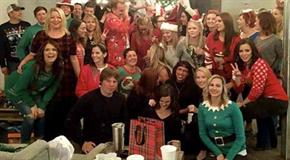
There was a recent bill regarding concealed carry permits in parks. Can you expand upon that?
It’s the Guns in Parks bill. The state has passed it essentially saying if you have a permit to carry you can enter into parks with a firearm. Nashville’s Metro Parks & Recreation has taken a position essentially saying that when we are operating the venue inside the park, it does not adhere to that. Which we agree with. I don’t think anyone should be allowed into any venue in a public space, be it a sporting event or concert, with a firearm, unless they are the police hired to ensure the safety of the patrons at the venue
What is the current status of security measures at Ascend?
I think we were always taking great security measures. If anything, given recent events and, specific to Nashville, we use a third-party security company, Axis. They’ve done a wonderful job as it relates to searches and wanding, and protecting everyone who is coming into our facility. I think the general safety of every patron who comes through our facility is a top priority for everyone in Live Nation from an operation standpoint to a promoter’s standpoint, even in the buildings where we use third-party security companies.
So what do you do to lighten the mood at a Live Nation office?
We split our office space with Brian O’Connell and his team. I think Brian does an awesome job of lightening the mood in general, preaching that we should have a good time and have fun. Brian is a big Notre Dame fan and his son just graduated from there this last year – so Rob Beckham (WME) gave him these Notre Dame-themed boards for cornhole.
O’Connell has a standing 3 o’clock cornhole game. Whether it’s his team playing against each other or whether it’s me or somebody else it happens at 3 o’clock whenever Brian’s in the office. I think we try to do a variety of different things. This year I was on the March of Dimes board. Sean Henry (Bridgestone Arena COO) asked me to be on his team for the March of Dimes’ Walk so I’d say the vast majority of the folks on my side went out to walk the 5k and supported it. I think, generally speaking, the personalities of the people who work in our office pride themselves on respecting their coworkers and working hard but trying to also enjoy the work that we do.
There’s an unfair stereotype that Nashville is a country music town. For instance, at Ascend, My Morning Jacket sold out; Phish sold out…
Jill Scott did 5,000 people. Counting Crows I think did 6,000. Elvis Costello and Steely Dan were basically sold out. It was a pretty nice stretch and an amazing way to open the building. I think having watched what Peter Conlon did for us in the marketplace and watching the other things happening in the marketplace, I think it was no longer just another perception of it being country.
I think there are a lot more rock agents and managers moving to Nashville than we’ve ever seen in the last two years. It’s not just a country town. You can do the country thing on Broadway every single night of the year. If anything, I wish we could do a little more country music in the amphitheatre but it ends up being a small percentage relative to the programming mainly driven by where Music Fest falls and the timing of the major shed tours.
Are you ever surprised when a show is a stiff? Or, rather, do you have an idea as to why, either before or in hindsight?
I would absolutely say there are times when I’m surprised that the market reacts the way that it does. You’ll see a success in a specific genre and think it should translate to a comparable artist, and it just doesn’t. And there’s nothing to explain it. And I’ve heard that from other folks who have been in the market much longer than me, whether it’s Ali Harnell or the people at TPAC or the symphony.
I don’t think it’s different in any market. I think people in San Francisco, New York or L.A. are shocked by shows that should have done better. There is some unpredictability in whatever we do.
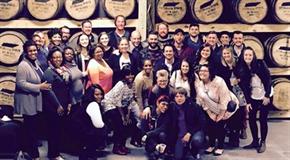
Do you ever come up with a solid theory?
I think you can quarterback it but there are other times when you just can’t explain it. I think I’ve seen that when I worked in Chicago, Philadelphia, and L.A. There are times when you can’t explain how the market reacts.
So what special packages, incentives, what have you, are available at Ascend?
Our amphitheatre has a season ticket and box program like all our amphitheatres. If an artist wants to do a specific VIP package we always look to accommodate them and whatever elements they have to go along with that. There is a “VIP Club” that is really a private bar, private bathrooms for people who buy season tickets or buy a box.
Also, there are times, like when needtobreathe came last year and [manager Steve Bursky] and all those guys came in, we threw a party for the band and all their guests after the show. Or we will have a specific event with Big 98 here, or when Dierks Bentley did his charity show here, where we utilize that space for artist needs.
Any particular shows stand out?
It’s hard to pick one, especially after the way Eric Church opened it. I remember that all my friends who are massive Phish fans were saying it was the best Phish show of the entire summer. My Morning Jacket was incredible. Buffett was amazing this year. Modest Mouse / Brand New the other night was one of my favorite packages of the summer. And we have a lot of great ones to look forward to with Twenty One Pilots and double Chris Stapleton shows. It’s hard to pick. It’s just a great venue that we’re all incredibly proud of it. I think the bands have had great experiences and the patrons have enjoyed it equally as much.
This season was preceded by concerns about noise. What was done to waylay them?
We had met with Metro Parks and discussed what those concerns were. Parks Director Tommy Lynch had gone to several community meetings specific to the areas where some of the sound at times would travel and, more or less, and what else had spawned those noise complaints. Tommy did the community meetings and we sat down after and discussed how we should address this and be good neighbors.
We did a lot of programming in a short amount of time, which was new to the community. I think that was part of the problem. There are a variety of events in the city, whether sporting or musical, where sound travels into a neighborhood and everybody is used to it because it’s an event that they are used to seeing year after year. Ascend was brand new and this year we have had fewer complaints given the spacing of programming and people getting used to the amphitheater. So there are a bit of growing pains of a new building in the marketplace.
You get a wind blowing in a certain direction at a certain mph and it will carry the sound further that evening than the next night. We just want to be good partners with the city and Metro Parks, and we’re self-enforcing. Most of the artists that have come through since then have been more than accommodating and great to work with.
Rich Best (Live Nation’s exec VP of booking, Southern California) called you a rock ‘n’ roller. What does that mean? I think he’s referencing my passion for music in general. I always love when we see a band like Cage The Elephant go from clubs up into bigger rooms or Queens of the Stone Age. That’s what I really, really love.
Any artists you can claim you had an early line on?
I’d say At The Drive-In when I was in high school. They were one of my favorite bands and I love the fact that they’re playing shows again. I say in the last couple years Gary Clark Jr. and Fitz & The Tantrums were artists that I loved and, when I was in Philadelphia, had the chance to work with them. Gary Clark Jr. just played the amphitheatre and we co-promoted it with AC Entertainment.
Brian Benson did the same thing with Gary in Nashville that I did in Philadelphia. For me it’s also been fun to work with acts I grew up loving and listening to. This year we did the Gregg Allman Laid Back Festival and (manager) Michael Lehman is wonderful to work with and CJ Strock of WME is amazing.
I grew up on Allman Brothers records. That’s one of my parents’ top 10 favorite bands.